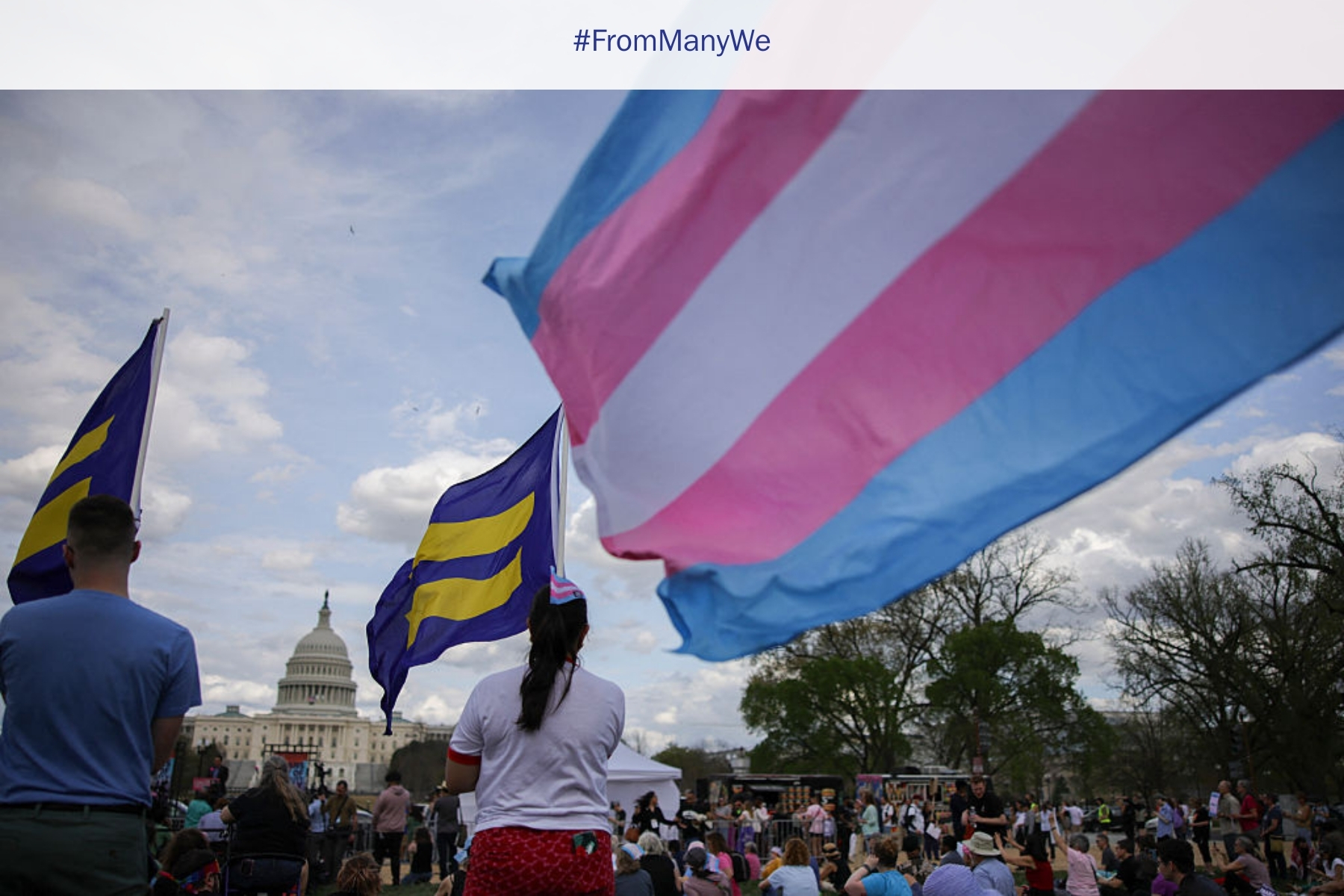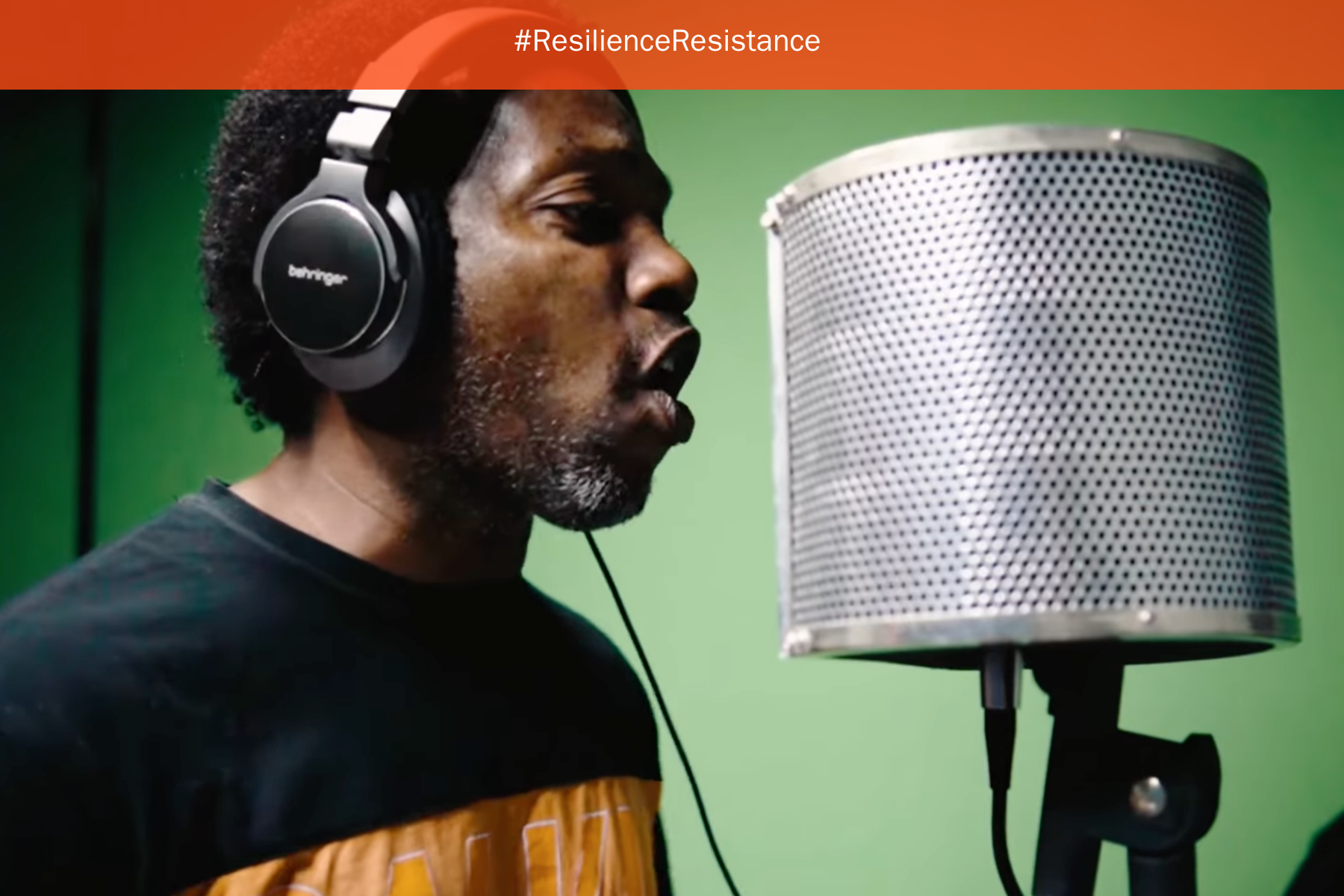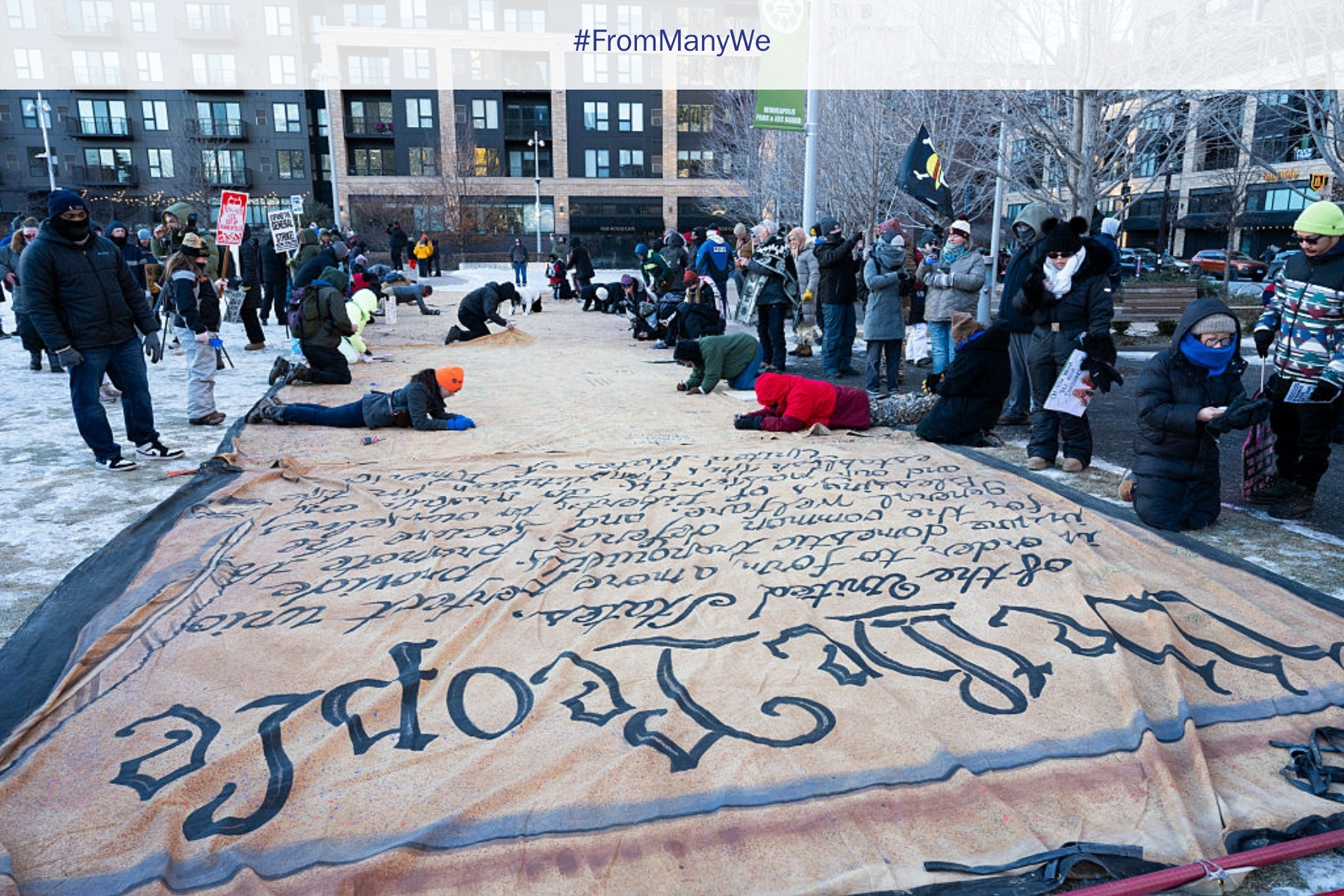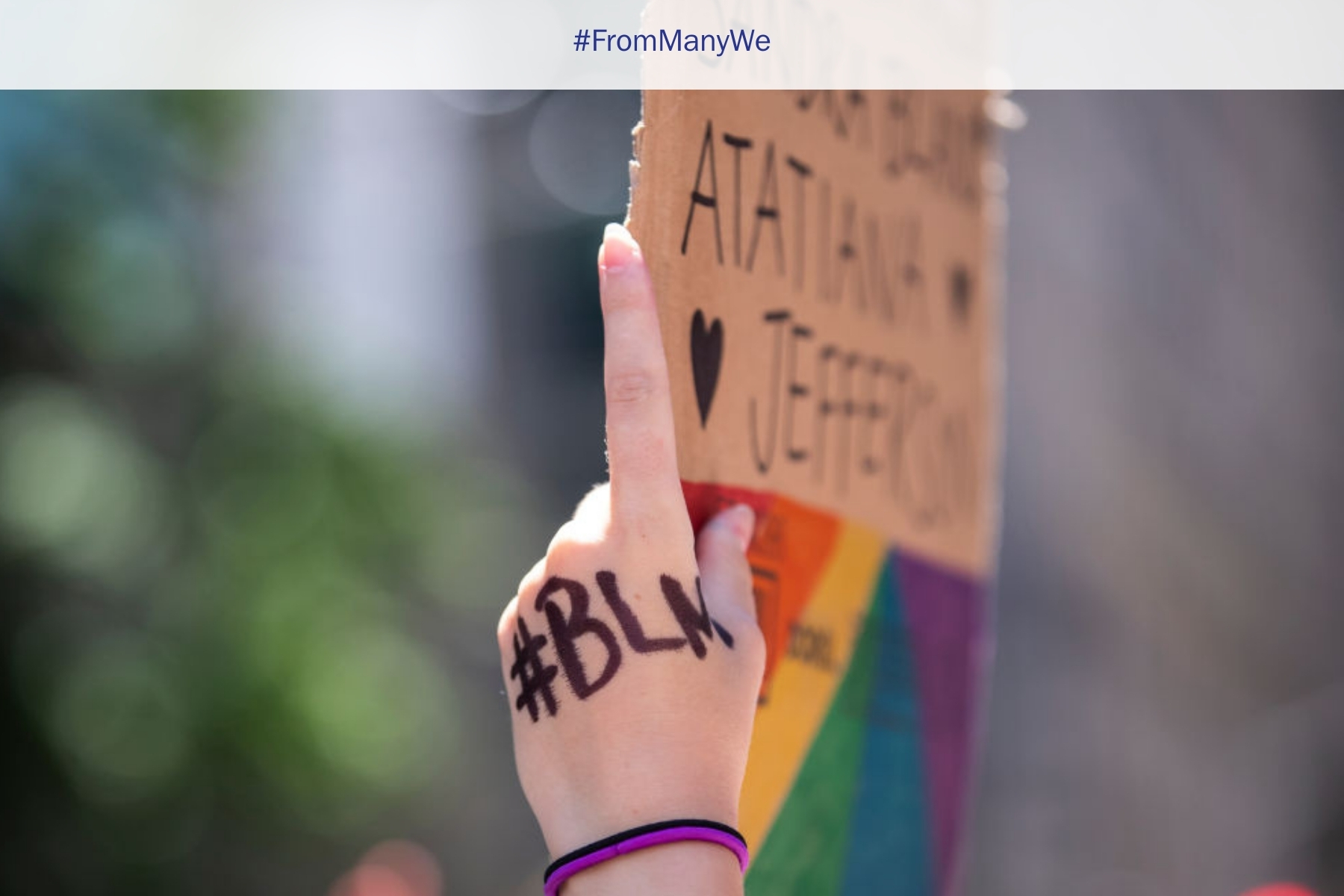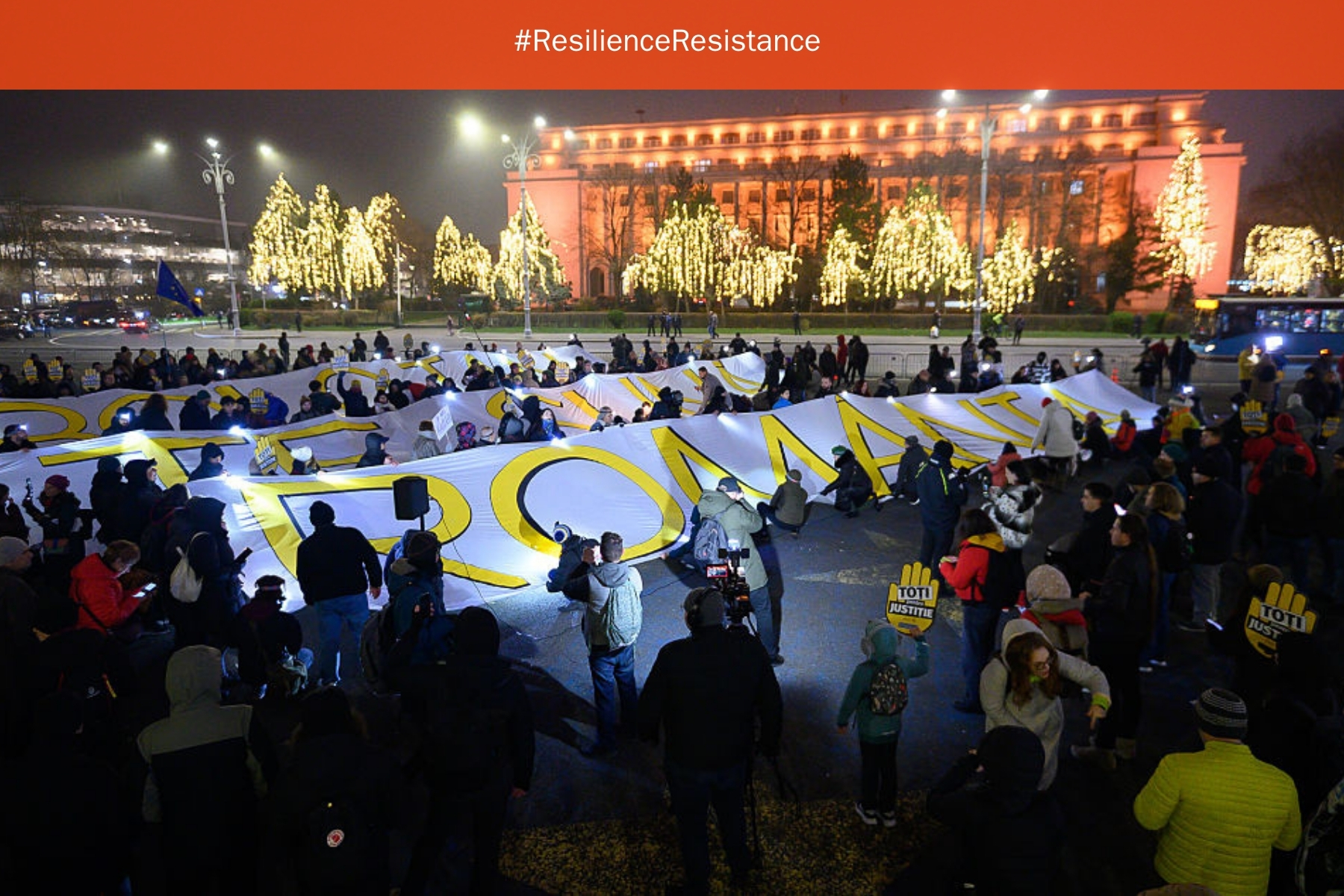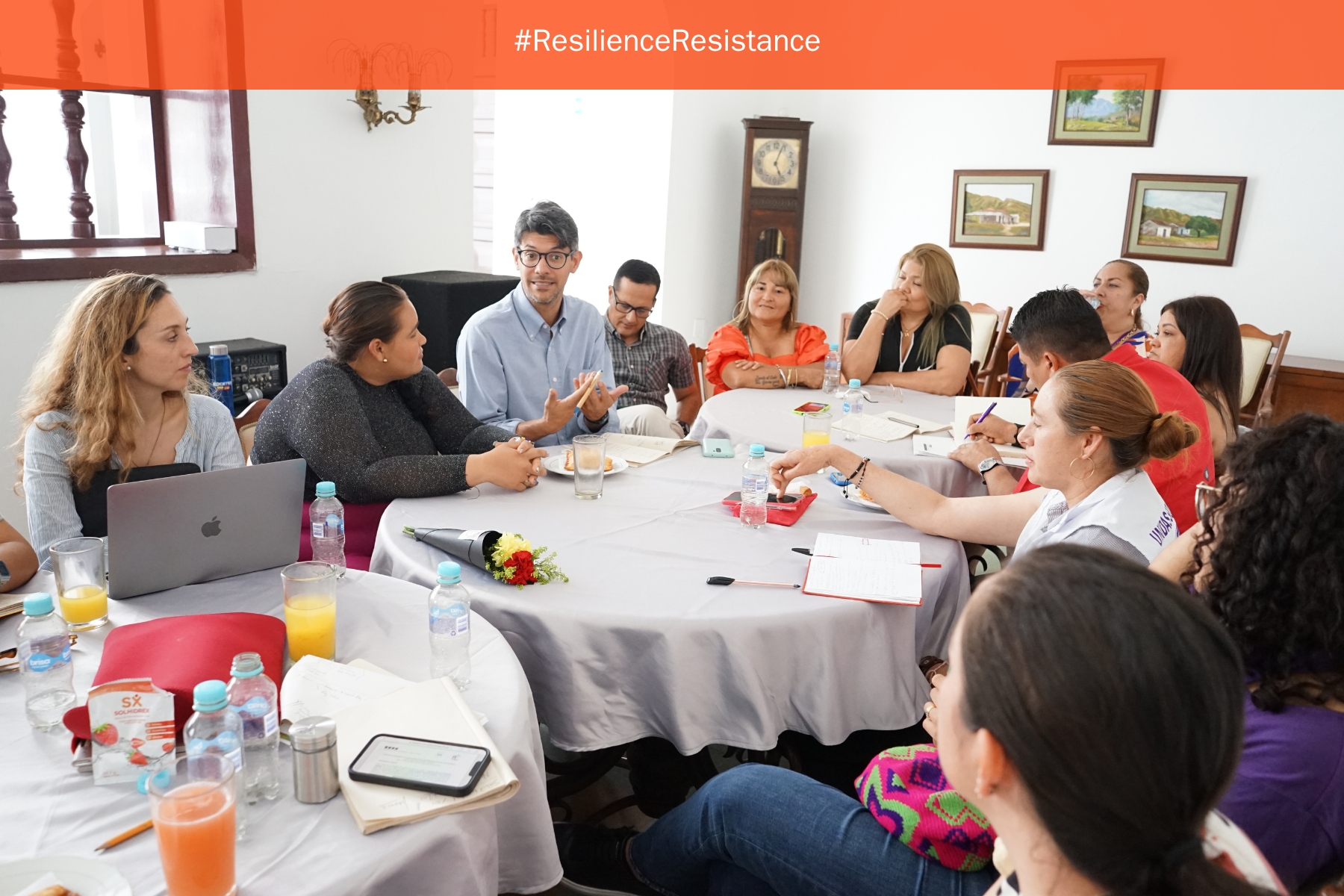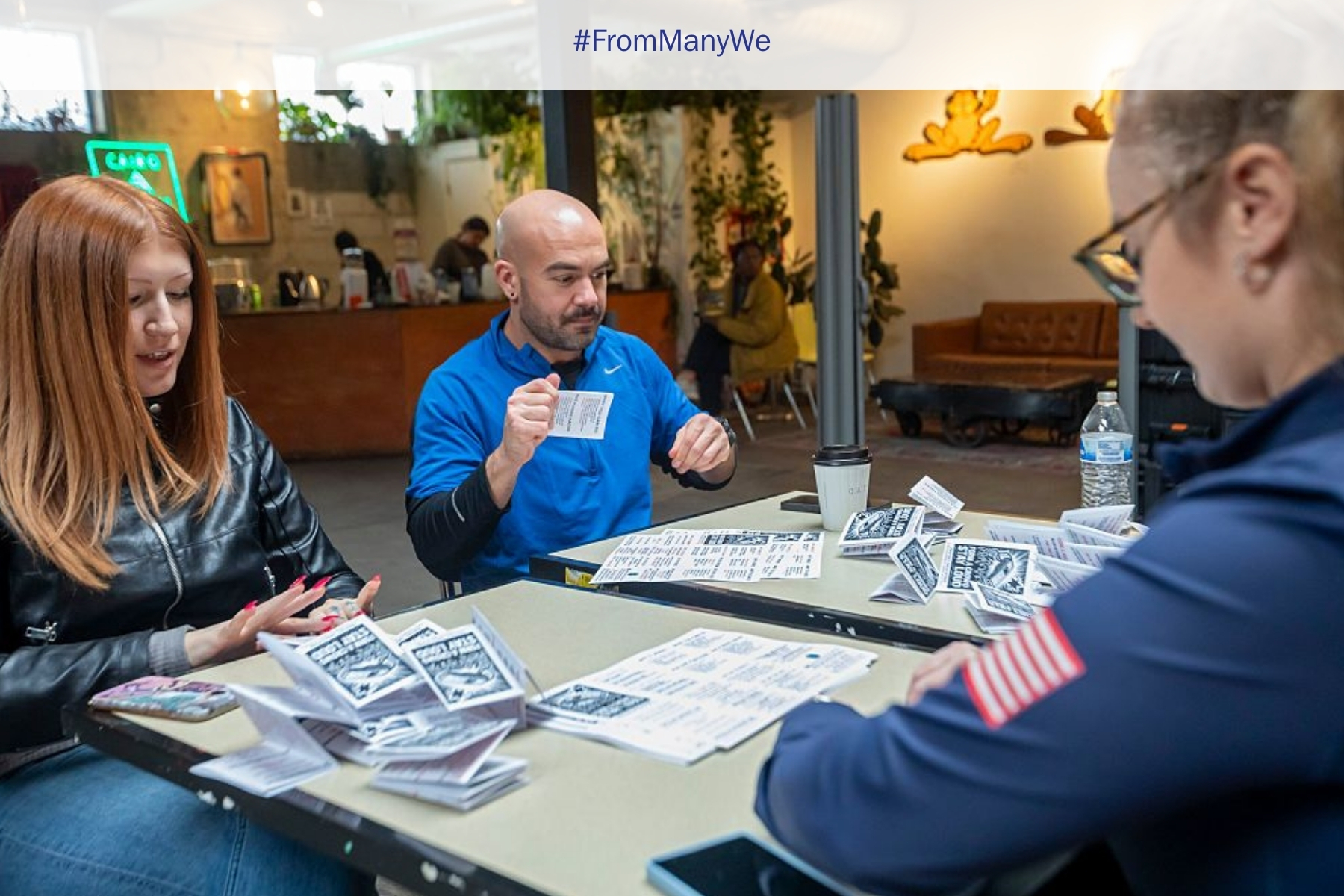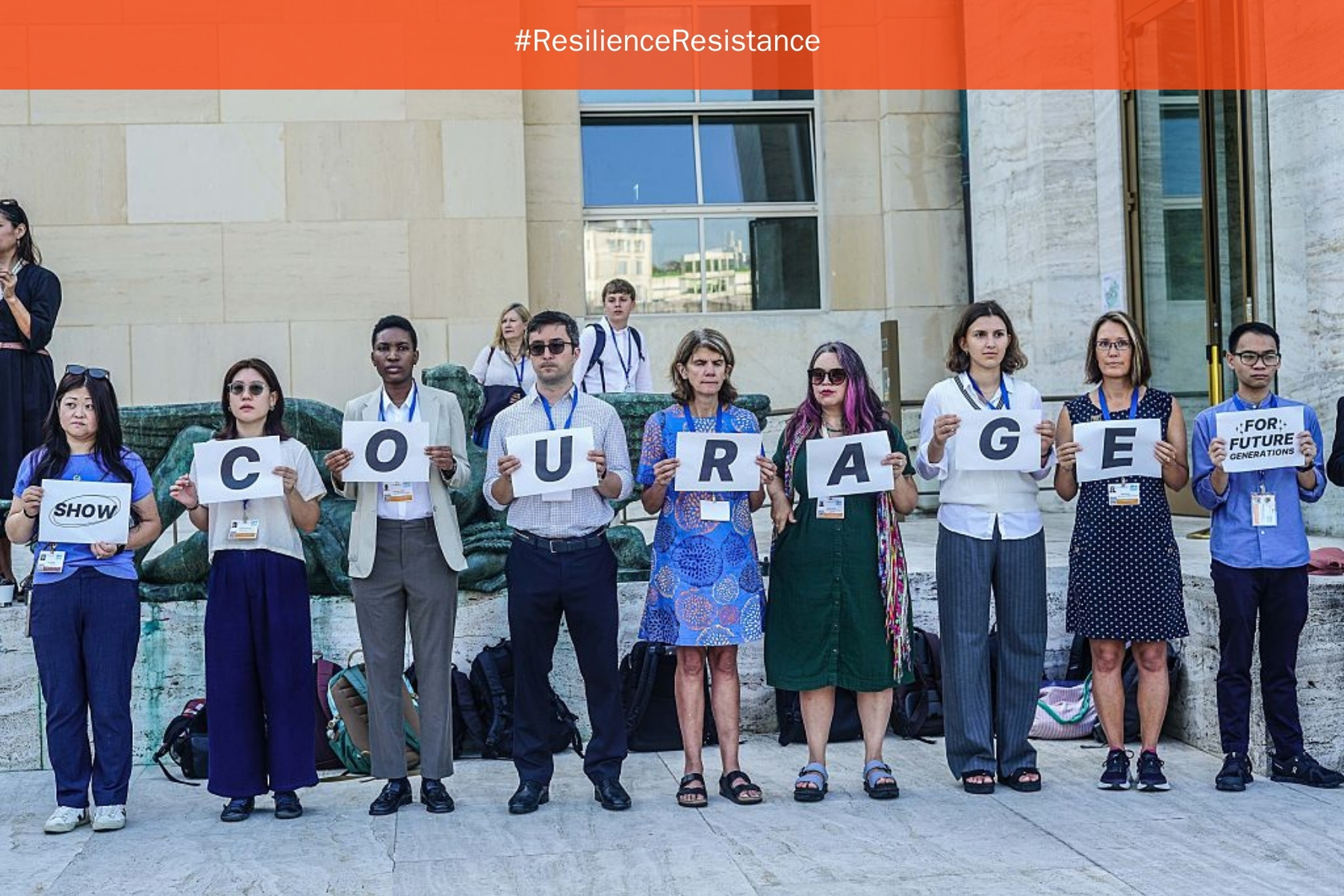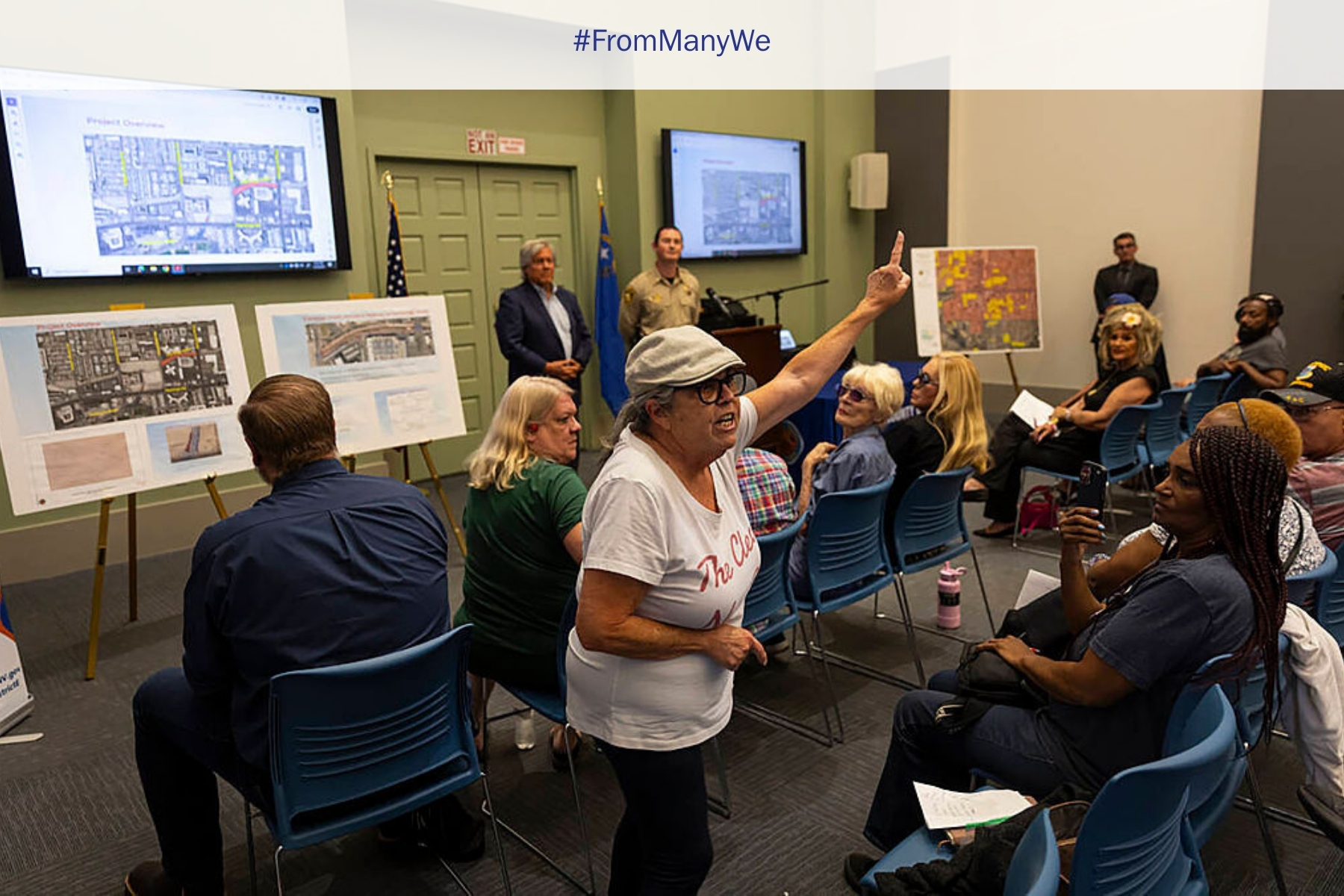War Is the Ultimate Tool in the Authoritarian Toolbox
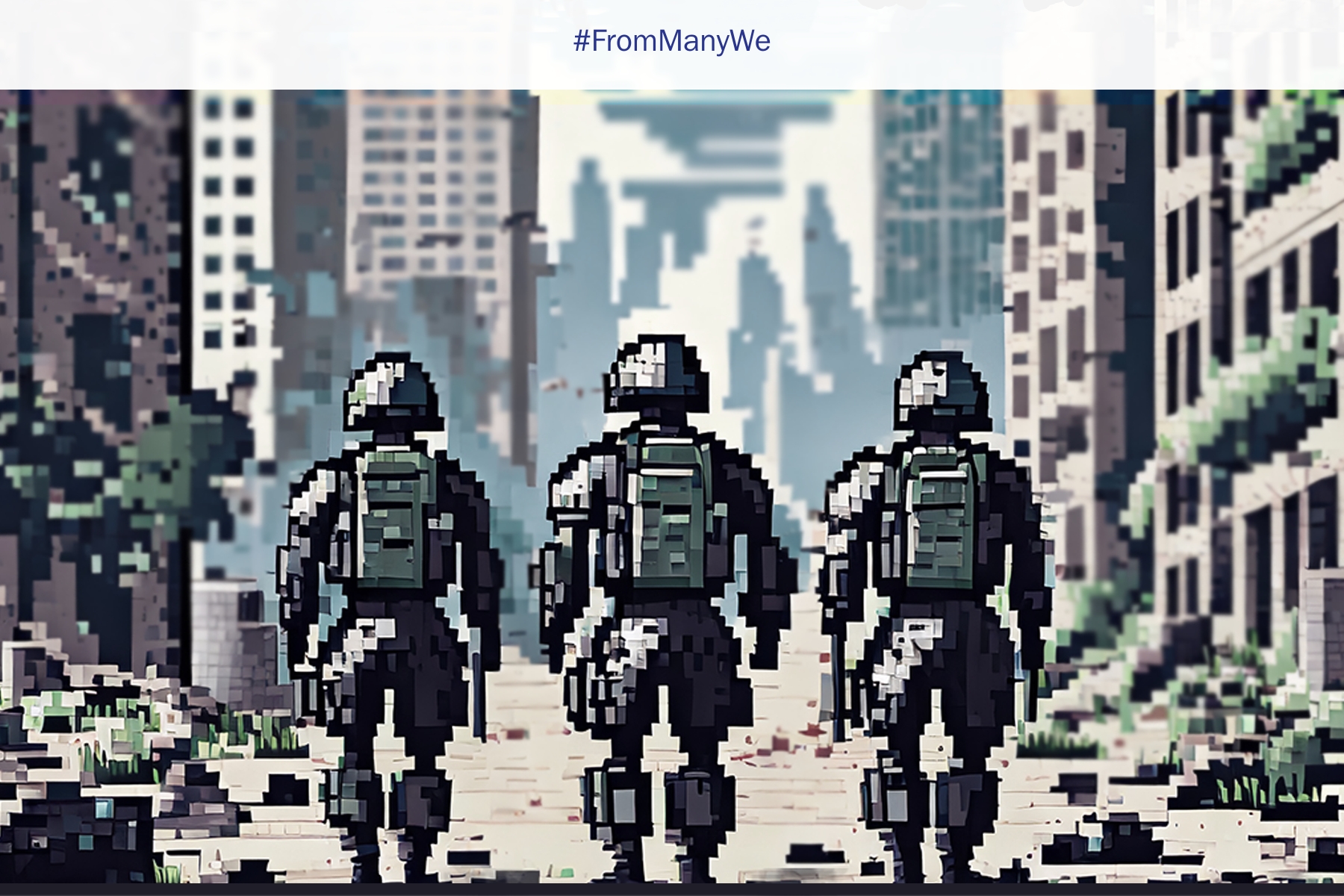
I barely had a chance to grieve the gut-wrenching news of Hamas’ pogrom on October 7, 2023, before the familiar drums of war were beating. On October 11, the Israeli Defense Force tweeted, “You either stand with Israel or you stand with terrorism.” It echoed George W. Bush’s nearly identical phrasing just weeks after the 9/11 attacks.
I felt transported back to September 11, 2001, in New York City: first was the shock and pain of loss, and then the immediate anger and disbelief as collective grief was used to justify not only wars abroad but also domestic crackdowns on civil liberties in the US. This ambiguous “war on terror” included increased surveillance codified into law by the Patriot Act; the overpolicing of Muslim communities; and the horrific kidnapping, detention, and torture of prisoners at Guantanamo Bay and other secret facilities globally. Over 20 years later, many of these wrongs have not been righted and have become an accepted part of the American political landscape.
Authoritarian-leaning governments deploy numerous strategies to shut down dissent and consolidate power domestically: co-opting independent media, increasing citizen surveillance, restricting internet freedom, limiting the right to protest, and so on. Usually, would-be authoritarians make an initial effort to justify these policies by vilifying their opposition and scapegoating minority populations in the name of “national security.”
War makes the job easier: It’s the ultimate opportunity to diminish civil liberties in the name of “patriotism” and the war effort.
Precedents Set in the Russia-Ukraine War
Vladimir Putin has made full use of war as a tool of domestic repression since the full-scale invasion of Ukraine in 2022. An already repressive state was made even more so after a March 2022 law amending the criminal code to include “public dissemination of knowingly false information about the use of the Armed Forces of the Russian Federation.” In practice, this law has been used to silence protests and crack down on all remaining independent media. Journalists committed to continued reporting of the truth were forced to flee the country and set up as media in exile simply for calling the conflict a war rather than a special military operation. Thousands of people have been detained and hundreds face criminal charges and prison sentences for speaking out against the war, posting about it on social media, or even holding a blank piece of paper. Teachers have lost their jobs and students have been arrested.
And wartime restrictions are not limited to Russia in this conflict: Ukraine’s government has also been putting limits on its citizens in the name of war. Wartime media restrictions were compounded by the December 2022 legislation that drastically increased the role of the government’s media regulator and the monopoly of state-run media. These restrictions were justified as resistance to Russian disinformation. As a result, independent journalists report increased self-censorship and compounded challenges when reporting on controversial issues such as government corruption. To be sure, there is no need for false equivalencies: Ukraine is fighting a war for its survival and one of Russia’s potent weapons has been its well-financed and sophisticated propaganda machine. But at a time when Ukrainian civil society has resumed its steadfast work of holding its government to account, it is important that critical local voices are able to have broad reach in the name of a more pluralistic and democratic Ukraine.
Silencing Dissent in Israel
Since October 7, 2023, Israel has also been cracking down on freedom of speech and the right to protest. Police have arrested protestors—including former members of Knesset, Israel’s parliament—and Israel’s Supreme Court upheld a police ban on antiwar protests. Emergency regulations have extended the maximum time for detention without a lawyer. On November 8, the Knesset amended the Counter-Terrorism Law to criminalize “the consumption of terrorist materials,” including online content. As a result, Israeli citizens’ social media posts are leading to police questioning, detention, and arrest for alleged “support for the enemy.” Even messages of unity are being silenced. Peace activists were detained for publicly displaying a simple message: “Jews and Arabs, we will get through this together.”
Autocratic Hamas has engaged in years of brutal repressions and restrictions of Palestinians’ freedom of expression in Gaza. But Hamas’ actions do not excuse Israel from adhering to democratic norms and respecting the rights of its citizens. If national trauma is used to secure unchecked power, Israel further diminishes its claims to being a functioning democracy.
It is important to remember that right up to October 7, hundreds of thousands of Israelis took to the streets weekly to oppose proposed judicial reforms that would curtail the power of their supreme court. Israelis saw these reforms as a way for Prime Minister Netanyahu to evade his corruption trial and impose authoritarian rule. This protest movement, the largest in the country’s history, warned that their far-right government’s actions were making the country more vulnerable to attack; tragically, they were right. If current protests against Netanyahu grow, it would not be surprising for the government to justify more direct repression to resist the increasingly loud calls for his removal.
A Call to Action for the United States
Even the most unpopular leaders can instrumentalize war to secure unchecked power for themselves and their allies. Would-be authoritarians watch each other and learn from each other’s examples. All of the US presidential candidates for 2024 are noting how war can make domestic policy changes possible.
As a Jewish American immigrant from Ukraine, I am keenly aware that history repeats itself unless citizens pay attention and deliberately push back. I am deeply inspired by the journalists, legal advocates, and ordinary citizens who are standing up for justice and actively resisting the dismantling of democratic norms in times of a national emergency. Prodemocracy leaders within the US can and should learn valuable lessons from the work of these activists.
In Israel, legal advocacy organizations like Adalah and the Association for Civil Rights in Israel are working to protect freedom of speech and the right to protest. The prodemocracy protest movement has reoriented to direct mutual aid work and is providing essential services to the families of hostages in the stark absence of government support. Peace activists like Peace Now and Standing Together remain committed to Israeli-Palestinian solidarity, even in wartime, and are holding the government to account for its domestic repressions.
Russian independent media like Bumaga, Dozhd, and Proekt have relocated abroad to continue reporting for Russian audiences. Organizations like OVD Info are defending the right to freedom of assembly inside of Russia. In Ukraine, the Institute of Mass Information works to maintain journalistic standards and freedom of speech. Ukrainian independent media like Slidstvo are reporting on the war but also holding their government to account, while legal advocacy groups like the Kharkiv Human Rights Group are documenting Russian war crimes and also defending the rights of Ukrainian citizens, including those held in prisons and police detention.
Now is the time to support these civil liberties champions; direct financial support from the international community strengthens their ability to stand up to authoritarian measures. It is also the time for US civil society organizations to build meaningful relationships with international movement leaders who have direct experience with wartime repression. Examples of effective antiauthoritarian resistance provide valuable lessons to other democracies at risk, and we urgently need these lessons to build our own preparedness.
Yelena V. Litvinov is the cofounder of STROIKA, Inc., an organization working across thematic and geographic silos to better connect and resource frontline antiauthoritarian activists around the world.
From Many, We is a Charles F. Kettering Foundation blog series that highlights the insights of thought leaders dedicated to the idea of inclusive democracy. Queries may be directed to fmw@kettering.org.
The views and opinions expressed by contributors to our digital communications are made independent of their affiliation with the Charles F. Kettering Foundation and without the foundation’s warranty of accuracy, authenticity, or completeness. Such statements do not reflect the views and opinions of the foundation which hereby disclaims liability to any party for direct, indirect, implied, punitive, special, incidental, or other consequential damages that may arise in connection with statements made by a contributor during their association with the foundation or independently.
